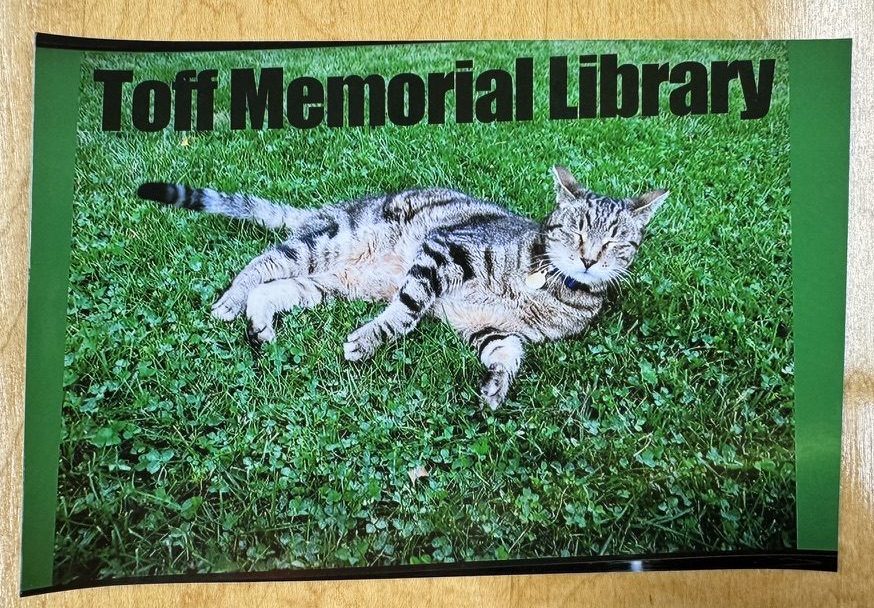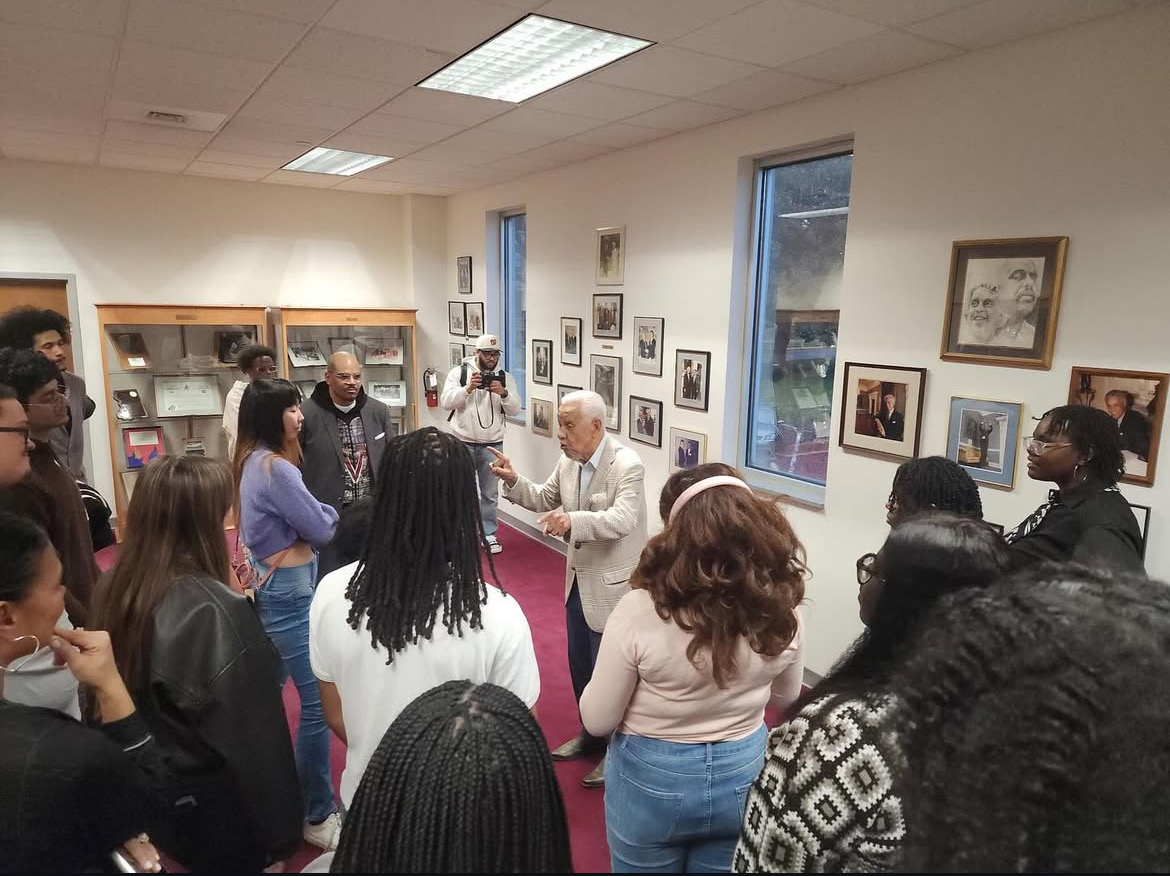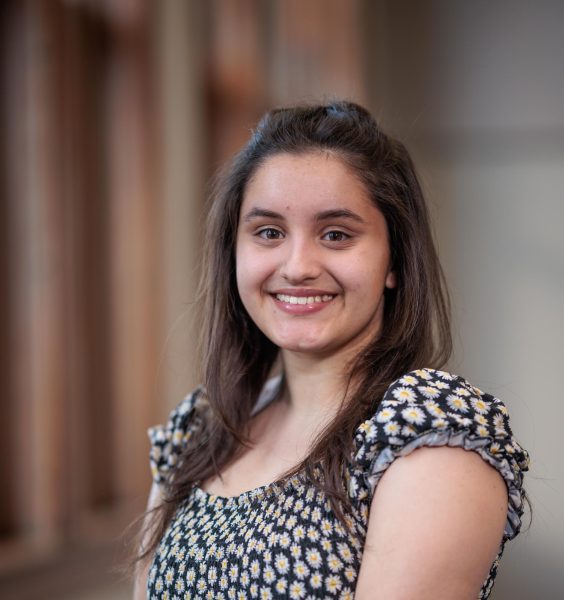On Saturday, March 30 from 1 to 3 p.m., Environmental Carls Organized (ECO) hosted a Reusable Bag Workshop at the Weitz Center atrium. This event was a result of the collaboration between ECO, the Center for Community and Civic Engagement (CCCE), the Makerspace, the Northfield High School Environmental Club and Boomerang Bags.
Boomerang Bags is a global organization centered around fostering enthusiasm and conversations about reducing the use (and subsequent waste) of single-use plastic through the creation of reusable bags from waste fabric. Described by cofounder Jordyn De Boer, Boomerang Bags is “a movement towards shifting society’s throw-away mentality to a more sustainable revolution of repurposing and re-use!”
Savanna Blair ’26, one of the ECO leaders, explained how the club worked together to create the idea for this event as a way to blend various interests. By offering a tote bag making workshop, ECO hoped to appeal to crafters and environmentally conscious students alike.
For materials, participants were encouraged to bring their own used clothing items, such as old t-shirts, and or decorations to customize their creations. An unusual item was also requested: plastic bags. In addition, donated, patterned fabric was made available as well as “old thrift sale jeans” — jeans which had not been selling at the weekly ECO thrift shop.
Walking into the Weitz, visitors were greeted by a mountain of this donated fabric piled on tables. Patterns ranged from a chunky beaded quilt with pops of bold teal and bubblegum pink to a cottagecore-esque cream fabric with muted blue flowers. As participants mixed and matched fabrics together, the possibilities were endless.
A row of sewing machines were lined up near the wall, ready for bag makers. These machines were sourced from local Boomerang Bag partner Kathy Ness, the Makerspace and Carleton’s costume shop (located in the basement of Weitz).
The event was abuzz with the sound of collaboration, living up to the advertisement of it being “an afternoon of creative and sustainable tote bag sewing.” Blair described the atmosphere as “lively,” remarking on how “people really enjoy learning how to make bags from Kathy [Ness] and also experimenting on their own with how to combine fabric patterns.”
Ness first became connected with Boomerang Bags through her work at the Northfield public library. An issue arose as the library had to start paying for the plastic bags handed out to patrons. “They were ridiculously expensive,” said Ness. So she searched for an alternative. After seeing a post about Boomerang Bags on Facebook, Ness decided to join the 1145 local communities involved in the international movement and started using donated fabric to make reusable bags with a community of other volunteers.
From the initial “sewing bees” that began at the library, Ness’ Northfield Boomerang Bags Project community has grown to include sewing bees at the senior center, Imminent Brewing, the Northfield high school and Carleton.
ECO came up with the idea of a tote bag making workshop and then reached out to Ness to ask for her support. Ness graciously volunteered her time, materials and knowledge. What drives Ness is her concern for the environment and the desire to get rid of single-use plastic bags. “[Ness was] extraordinarily helpful in teaching us how to use the sewing machines and cut fabric and put it together to make the bags,” said Blair.
The purpose of this event was to reduce the community’s use of plastic bags, which according to an email ECO sent out, “cause damaging tangling of machinery at our recycling center.” With the opportunity to make their own reusable totes, hoped to reduce campus waste by having students replace plastic bags with their own creations while shopping. In addition, the email mentioned that “excess tote bags will help establish a permanent and convenient bag swap location for grocery store runs.”
Eco utilizes volunteers to test contamination in compost, trash, recycling bins and clothing sales from 3-6 p.m. every Saturday. Because of this job description, volunteers are always needed. To get more involved in ECO, Blair welcomed “any emails or comments about things people would like to see done in terms of the environment and how we can make campus more sustainable.”













